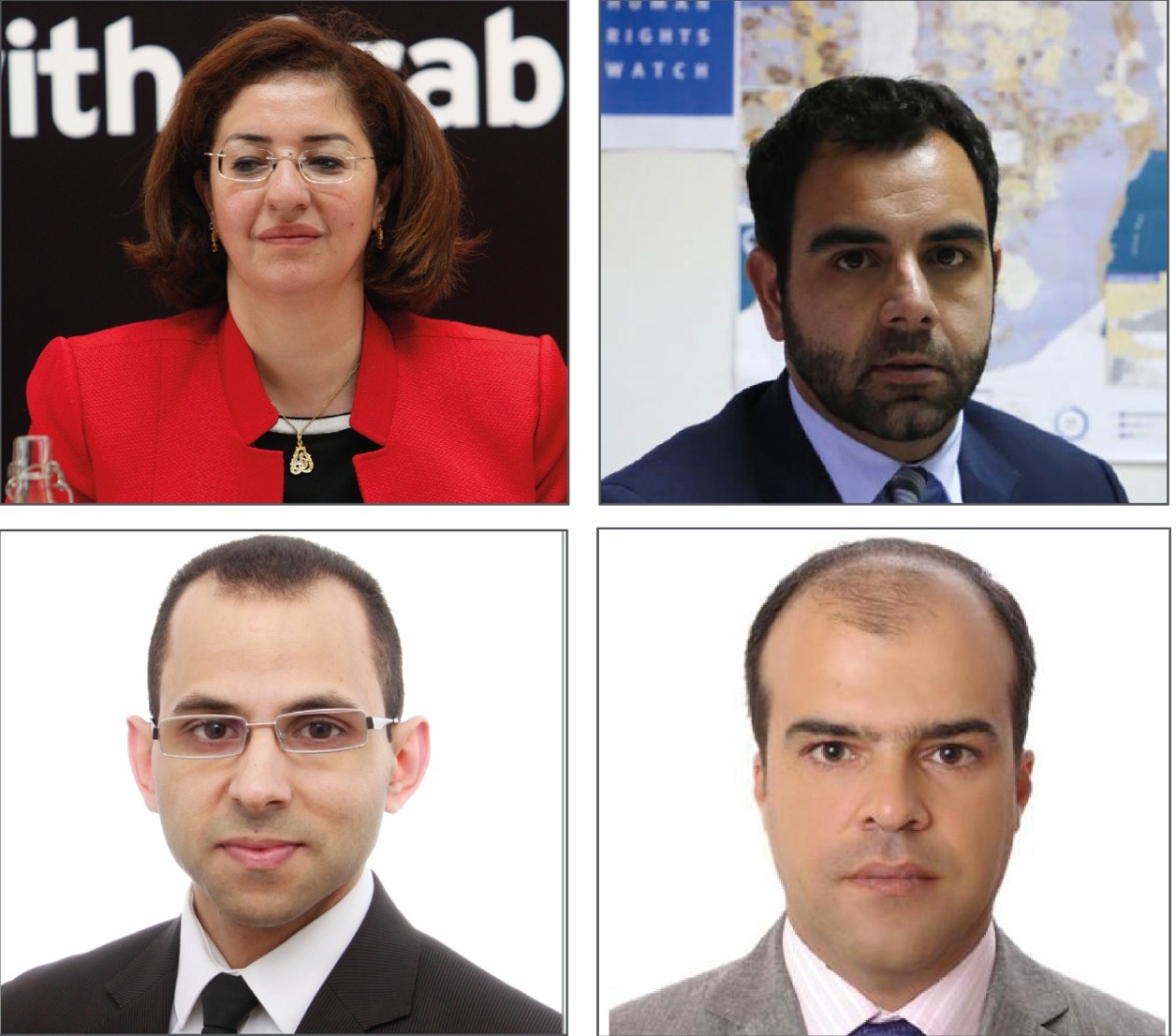As part of the Question of Palestine (QoP) Program, Palestine-In-Depth Dialogue Series, the Arab Renaissance for Democracy and Development (ARDD) held a webinar titled “Israeli Apartheid Exposed: What Next” on June 15, 2021, discussing the main findings of the Human Rights Watch report A Threshold Crossed: Israel Authorities and the Crimes of Apartheid and Persecution. and then start a debate engaging Palestinians in the OPT, Gaza and the 1948 territories and beyond, as well as public figures in the Arab region discussions regarding scenarios and next steps. Guest speakers included: Israel and Palestine Director at Human Rights Watch (HRW) Omar Shakir, Jadaliyya co-founder and editor and political analyst Mouin Rabbani, lawyer and former minister of Social Development in Jordan Ms. Reem Abu Hassan, and Chair of Law for Palestine Ihsan Adel. Coordinator of ARDD’s QoP Program Francesca Albanese moderated the event.
The webinar covered the topic of Israeli apartheid, particularly as it was finally confirmed and exposed after years of HRW’s research into Israeli violations of established international law and practice, as well as of international jurisprudence and case law. Discussions traced the evolution of the discourse on apartheid, initially centered on the South African experience of white dominance and oppression of the black population, but for years now perfectly fitting the system of racial domination of Palestinians as designed by political Zionism even before the creation of the state of Israel.
Many denounced Israel as an apartheid state. Among them, Palestinian activists and scholars, the Boycott, Divest and Sanctions (BDS) movement since 2005, the Special Rapporteur on Human Rights in the occupied Palestinian territory (oPt), South African Professor of international law John Dugard, in 2007, and an unprecedented study issued by ESCWA – Israeli Practices towards the Palestinian People and the Question of Apartheid, 2017 – which resulted in Rima Khalaf, the then ESCWA director to resign after refusing to withdraw the study from the organization’s website.
The highlights and contribution of the HRW report published in April 2021, as presented by its main author, Shakir, are its legal analysis and conclusions that consider Israel’s practices vis-à-vis Palestinians as crimes against humanity and the crime of persecution, particularly relevant to the ongoing ICC investigation.
Based on the evidence proving Israel’s “intent to dominate” and the means through which it pursues it, the HRW report concludes that “the threshold has been crossed”, apartheid is a reality for millions of Palestinian and there must be recognition of this heinous reality and the need to put an end to it.” The international community must recognize Israeli apartheid and persecution, and the ICC must investigate and prosecute the Israeli officials implicated in such crimes, says the report.
The webinar highlighted the importance of the HRW report and the contribution it has made to the scholarly literature on the topic. It, at long last, legitimizes open discussions about Israeli racism – till very recently part only of the pro-Palestinian activists’ discourse – and delegitimizes the international campaign to silence critics of Israel.
As Rabbani noted, “this provides us with important opportunities to make Israel’s structural racism a central component of any discussion surrounding Palestine, and it remains up to us to utilize these openings.” Rabbani underlined the importance of the report in exposing the institutional Israeli racism, in its multiple dimensions, and the impact this will have in the ICC.
“HRW deserves recognition for effectively collecting and presenting evidence of the Israeli discriminatory practices against Palestinians,” stressed Abu Hassan. “The fact that it was conducted by a credible western entity naturally brings the opportunity for advocacy both in the western countries involved in the conflict and at the ICC. The lack of a global framework for an institutionalized international movement to support the Palestinian cause must be addressed: a decrease in support in Latin America and Africa following the lack of involvement of the Arab states remains problematic.
“Only the unity of the Palestinian people can help them break down the Israeli apartheid, and there is also a need to work with Palestinian civil society organizations to continue to document Israeli crimes and hold the occupation accountable,” she added.
The HRW report is helping change Israel’s narrative of being a “democratic country” and acknowledge its practices as apartheid. This is giving a new emphasis to Palestinian denunciations of the reality they face both under occupation and in what many erroneously believe Israel to be, a democratic state and as Adel noted, in the case of Israel/Palestine, crimes against humanity are not isolated individual occurrences, but part and parcel of a long-standing state policy and these warrant serious condemnation of the system as a whole.
The speakers stressed that while criminalization and prosecution by the ICC and the complexities involved in criminalizing the crime of apartheid in a state pose challenges, it is essential to seek justice through all avenues, and therefore, it is important to put pressure on Israel. And even though Israel is the main culprit for the state of affairs, the importance and responsibility of the international, (specifically the United Nations), regional and local actors to tackle this crime cannot be ignored.
The discussions led to the conclusion that the issue cannot be tackled in one isolated event, and further reflection is needed on how to mobilize actors in the Arab region to address and take a stand regarding the issue.


